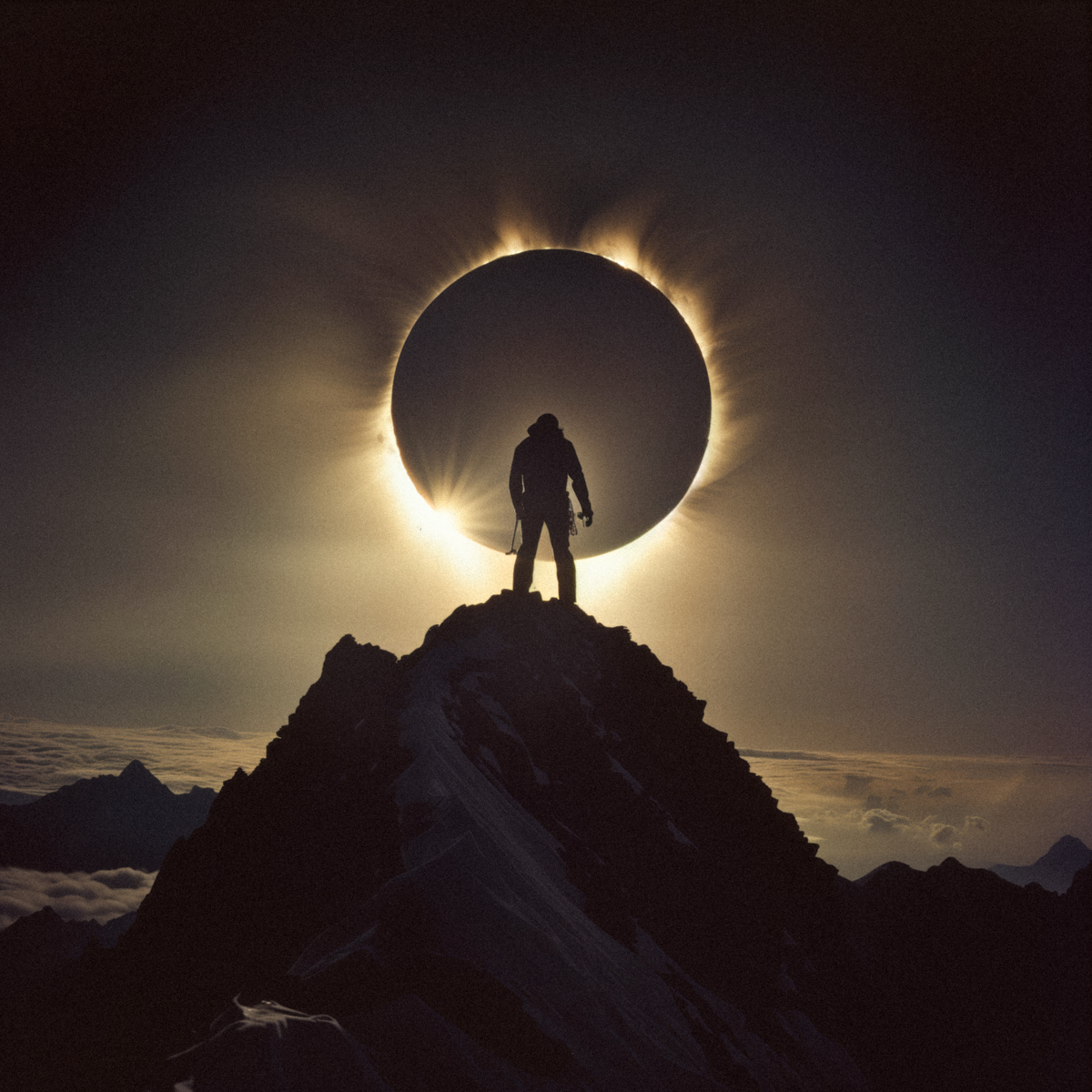
In an era where Earth had long been vacated, a lone explorer, part of an interstellar collective that once called this blue dot home, chose to voyage back through the void of space. Their mission was an unusual reversal of the age-old drive to discover the unknown: to return and bear witness to a celestial event that had been forecasted eons ago – the final full total solar eclipse.
Clad in a suit designed to outlast the rigors of time and space, the explorer descended upon the desolate planet, where the ruins of ancient civilizations lay buried under the relentless march of nature. The journey to the peak was silent save for the crunch of boots on stone, a solitary figure against the backdrop of an abandoned world.
With each step, the sky grew darker, the air cooler, and the moment neared. Upon reaching the summit, the explorer paused, surveying a landscape that had once teemed with life. As the moon slid across the sun, casting it’s shadow upon the Earth, the explorer looked up.
The corona flared, a ring of fire in the heavens, a phenomenon once celebrated and feared, now observed only by this visitor and the silent mountains. The moment was profound, the view, a connection to a legacy long gone. There, on the precipice of oblivion, the explorer was a solitary audience to a universe indifferent to viewers, a performance that would not be recorded or remembered.
When the light began to return, the explorer turned away from the peak, leaving the final eclipse behind. The journey back to the stars was not one of conquest, but of farewell – a silent salute to a planet that had been the cradle for a species capable of touching the stars yet destined to miss its own final bow on the cosmic stage. This was not an ending but an acknowledgement of the cycles that outlive memory, of beginnings and endings with no one around to hear but the echoes of history, the explorer let out a breath he hadn’t realized he’d been holding. He looked across the vast, silent landscape, the once vibrant planet now at peace in its solitude. Under his breath, he murmured a response to the ancient query, finding a truth that resonated within him, “We are so back, and we did indeed make it.”
It was an affirmation, a subtle recognition of the journeys taken and the distances crossed—not just in space, but in time and understanding. The “we” no longer referred to just humanity, but to the collective spirit of exploration, perseverance, and the ceaseless quest for knowledge that had been passed down through the ages.
The explorer turned his gaze upwards, to the stars that once guided his ancestors and now beckoned him home. With a nod to the silent Earth, a gesture of respect to its history and its mysteries, he began his ascent. The connection to those who came before was unspoken but deeply felt—as if in the quiet departure, amidst the lingering shadow of the moon and the sun’s renewed brilliance, the legacy of those who questioned their destiny was honored.
In the solitude of space, where the voice of one can seem as insignificant as a particle of dust against the vacuum, the explorer carried with him the realization that in their own way, through their aspirations and their dreams, they had all made it indeed.
Duncan.co/the-final-eclipse